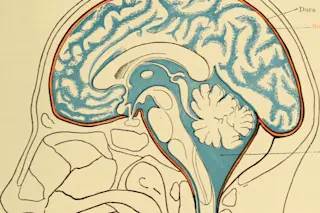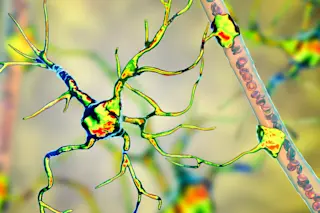Cerebrospinal fluid, or CSF, is a clear, colorless liquid that plays a crucial role in maintaining the health and function of your central nervous system. It cushions the brain and spinal cord, provides nutrients and removes waste products.
Despite its importance, problems related to CSF often go unnoticed until something goes wrong.
I am a neurologist and headache specialist. In my work treating patients with CSF pressure disorders, I have seen these conditions present in many different ways. Here’s what happens when your cerebrospinal fluid stops working:
CBF is made of water, proteins, sugar, ions, and neurotransmitters. It is primarily produced by a network of cells called the choroid plexus, which is located in the brain’s ventricles or cavities.
The choroid plexus produces approximately 500 milliliters of CSF daily, but only about 150 milliliters are present within the central nervous system at any given time due to constant absorption and ...














